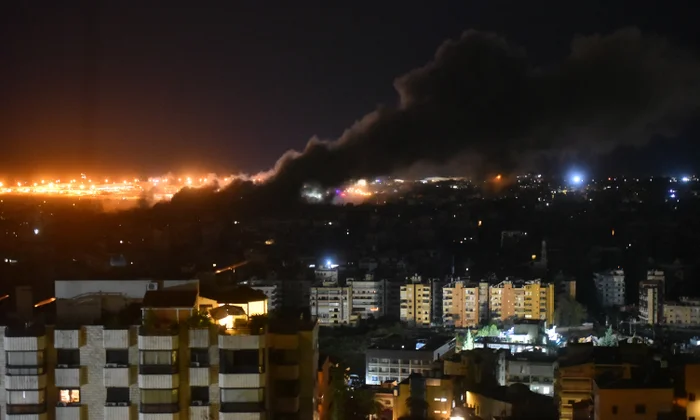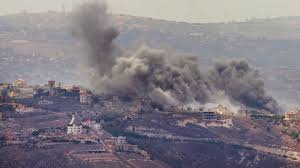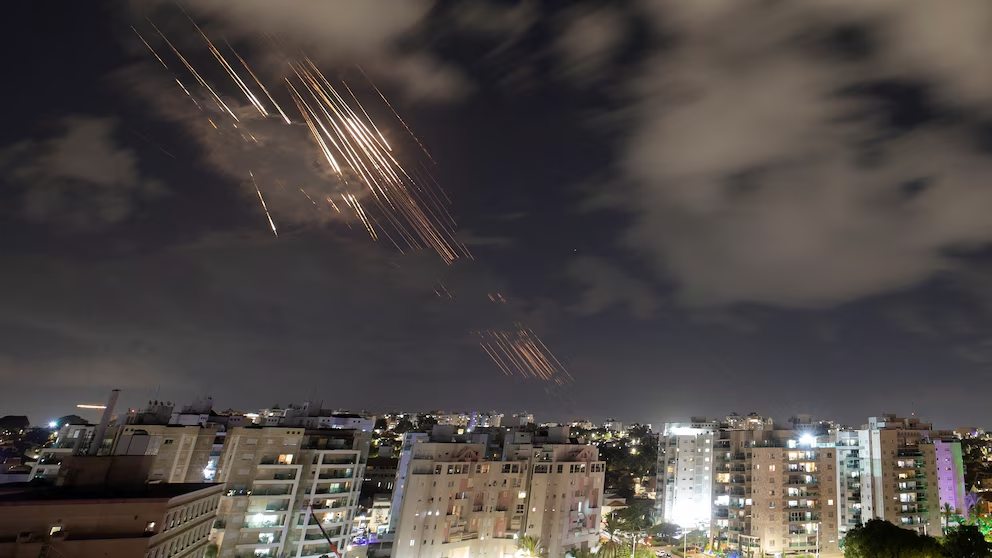Highlights:
The confrontation in the Middle East has turned dangerous following Hezbollah’s rocket salvo into northern Israel, ratcheting up what is increasingly being described as the multi-front war between Israel, Hezbollah, and Iran. This was occurring at a time when the US military had been sending big deployments into this volatile region, where CENTCOM’s chief visited Israel during the current crisis. It is also complicated by reports of an explosion that have been denied by Tehran in Iran’s Isfahan province, which have furthered speculation about the full extent of regional instability.
Hezbollah’s Rocket Attacks: A New Phase of the Conflict
October 7, 2024 Hezbollah launched a large-scale rocket attack on Israeli positions today. The attack came at military bases as well as civilian areas in northern Israel. Attacks have caused heavy damage, including air raid sirens and forcing residents into shelters. According to the IDF, the barrage includes dozens of rockets, with many intercepted by Israel’s Iron Dome system.

The rocket attacks seem to be a direct reaction to Israeli airstrikes in southern Lebanon, where bases of Hezbollah are found. The operations of the organization trigger an escalation of what already is a highly explosive situation as the state of Israel tries to come to terms with tensions in Gaza and West Bank. The multi-front nature of the conflict has kept Israel’s military forces on high alert, as now it faces the threat of its north and south borders.
The Rocket Barrage Timing: A Message to Regional Players
The rocket barrage is timed well, as a U.S. CENTCOM chief happened to be in the country for visitation. The plan is viewed as encouragement of the defense efforts of Israel. Reflecting on the visit by the CENTCOM chief, the United States is bent on demonstrating its commitment to its ally in the region at a time when Iran is now unraveling its ambitions and Hezbollah has hot up affairs concerning the vital Lebanon conflict.

To ensure that Israeli leadership can stop such aggression from Hezbollah and other militant groups, U.S. military leaders are present in Israel. This has also drawn flak from regional players like Iran who find this to be an escalation rather than a factor which stabilizes. The U.S. called for restraint but also said that America is committed to supporting the right of the Israeli people to self-defense, which means America is ready to engage if American interests are blemished.
Iran’s Role and the Isfahan Explosion Controversy
Adding a twist to the situation, reports began trickling in concerning an explosion in Iran’s Isfahan province. Israel has remained mum so far on the issue, but the Iranians quickly ruled out claims that the blast was caused by sabotage from within or by Israel. Speculations abound, and some say the explosion might have something to do with the back-channel discussions that have been ongoing between Israel and Iran, involving strategic sites like missile storage facilities.
This incident in Isfahan has gained international attention, with many asking if this might be the signal for a new front in the shadow war between Israel and Iran. Denial of the event by the Iranian government on foreign interference related to its causation generates questions about openness and the true nature of events. The conflict might expand into new dimensions for Israel due to involvement in hostilities with other regional actors, especially with the current hostilities with Hezbollah.
A Regional Powder Keg: Risks of a Wider Conflict
Rocket attacks by Hezbollah and an explosion reportedly in Isfahan point out to the volatile nature of the Middle East conflict. Analysts warn that the crisis may seize up and tackle and explode into a wider regional war if hostilities draw in more actors like Iran, which has historically backed Hezbollah both militarily and financially.
Given the region’s predilection for proxy conflicts, the responses of one can quickly escalate into counter-responses from the others, so the stakes were high for each and everybody involved. To control its multi-front war, Israel required diplomacy as much as military genius to keep engaged some of its concerned allies without triggering a further cycle of escalation.
The fact that this has been possible is attested by the mere presence of the US military leadership. That means Washington is meticulously following the events, prepared to intervene at any time for the protection of her strategic interests.
Humanitarian Casulty and International Response
The humanitarian situation in the region is deteriorating even as the conflict accelerates. Reports of victims and property damages are being received from rocket attacks in some northern Israeli towns while residents face disruptions in their daily lives worrying over a potential additional attack. In southern Lebanon, casualties due to Israeli air strikes have heightened alarm from international human rights organizations.
The European Union and the United Nations have urged de-escalation and warned that a drawn-out conflict could have grim humanitarian implications. Diplomatic moves to broker a cesadeal between Israel, Hezbollah, and their allies have so far failed as both sides blamed the other for the escalation. There exists an international renewed call for peace in the face of this possibility of all-out war; however, alliances and rivalries woven intricately across the region challenge this resolution.
A Critical Moment for Regional Stability
A critical point in the Middle East for regional stability has been marked by the conflict between Israel and Hezbollah. While war rages across the frontiers of Israel, the role of other regional powers like Iran, not to mention American involvement, will significantly affect the outcome of the present military hostilities. A mix of rocket attacks conducted by Hezbollah with mysterious events happening in Isfahan may indicate an expansion of the conflict if any diplomatic efforts fail to bring a stalemate ceasefire to the conflict.
So far, the world watches in anticipation as tensions continue to rise day by day, with hope-filled eyes looking for a peaceful resolution that seems to elude them. The consequences of this complex geopolitical situation will have far-reaching implications for regional dynamics and the balance of power, but much more importantly for peace in the Middle East in the future.
For Latest News Updates Click Here
